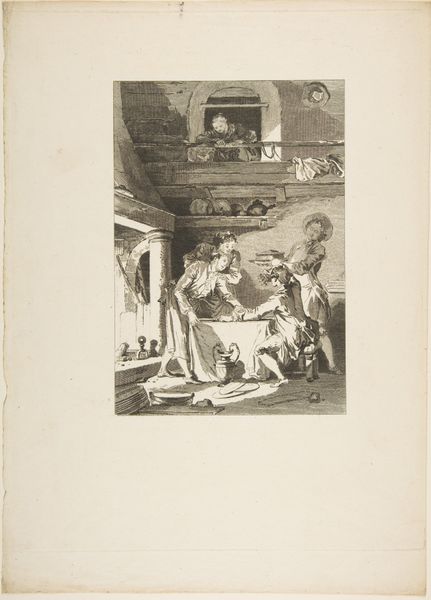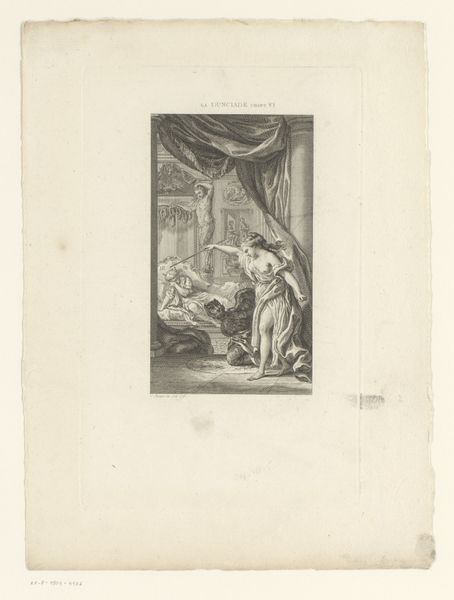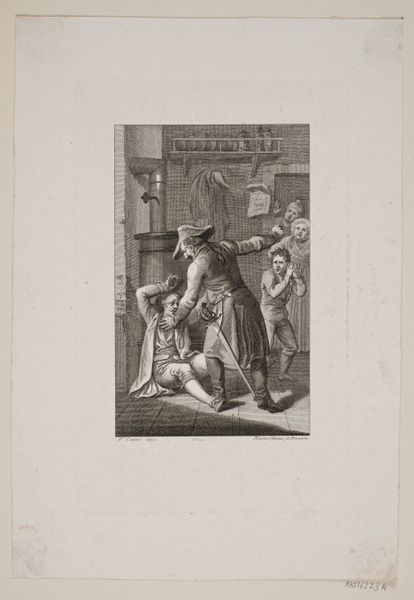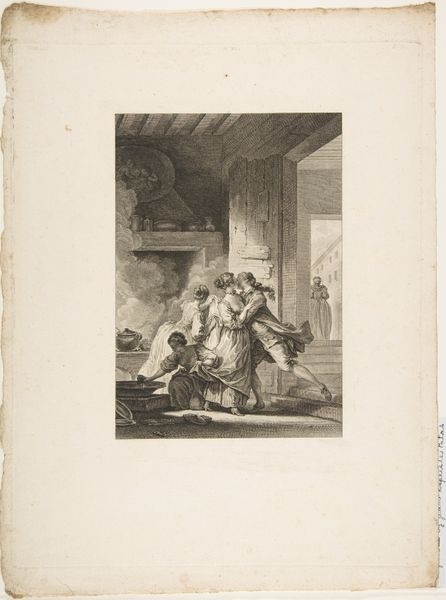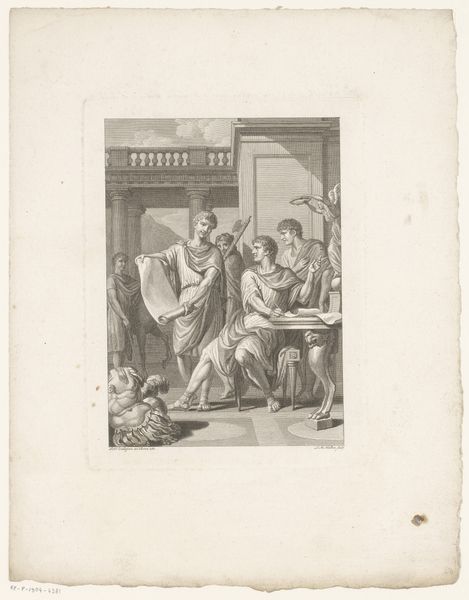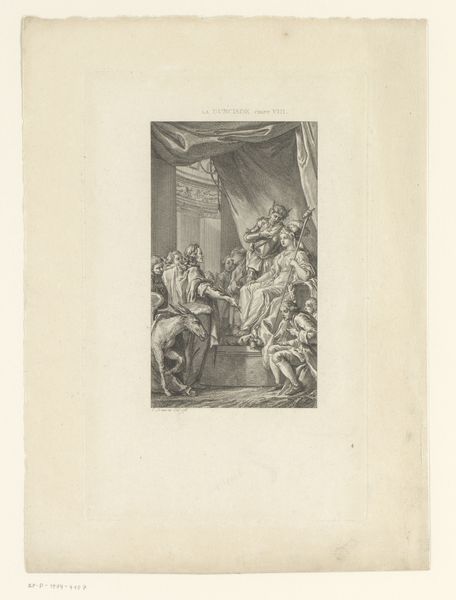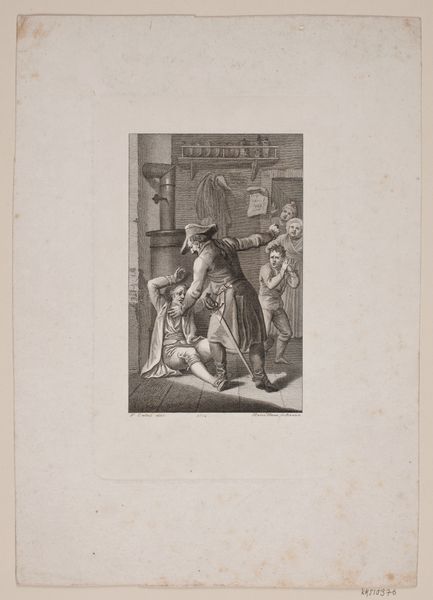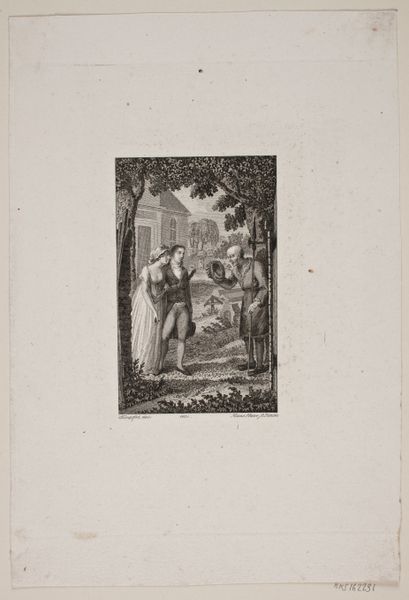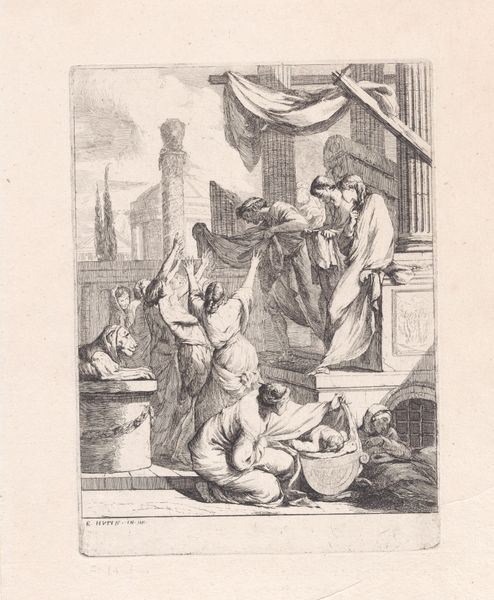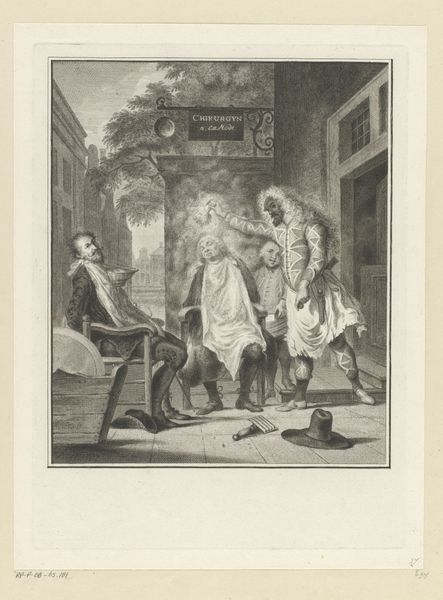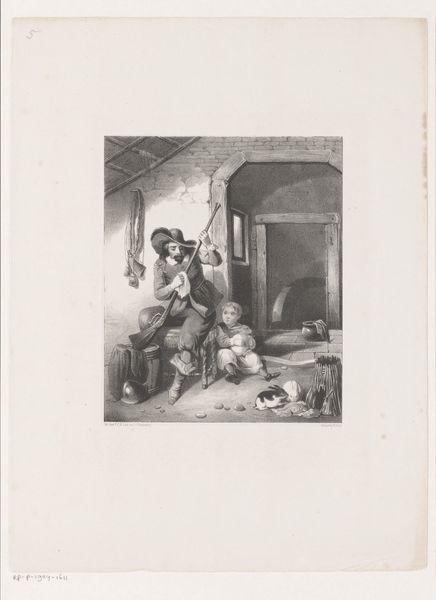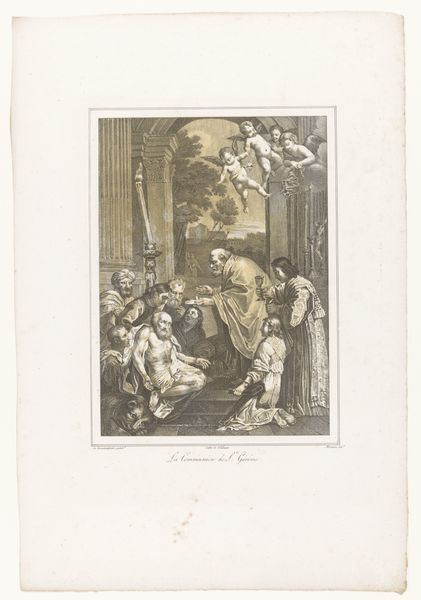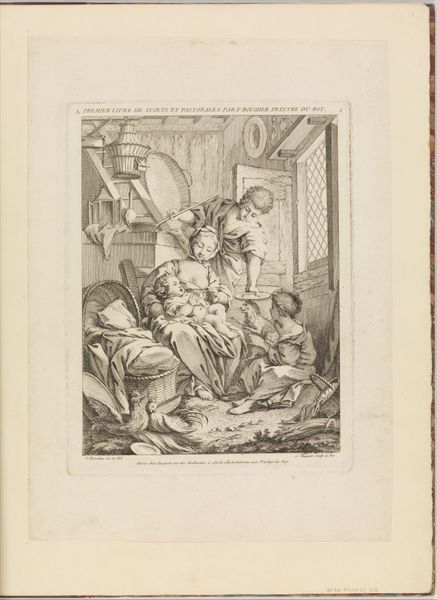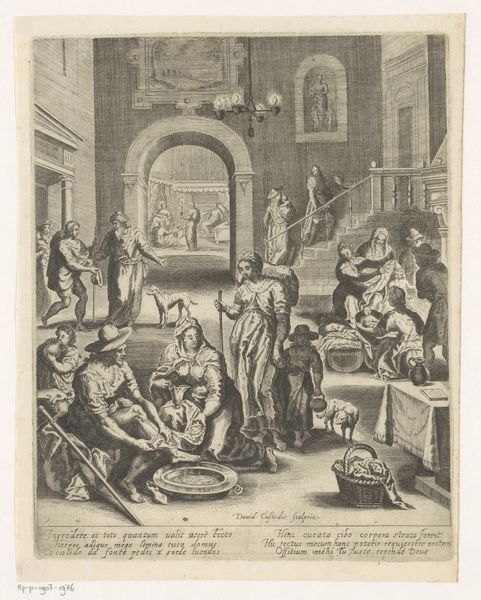
Le Pate d'Anguilles, from "Contes et nouvelles en vers par Jean de La Fontaine. A Paris, de l'imprimerie de P. Didot, l'an III de la République, 1795" 1795
0:00
0:00
Dimensions: Sheet: 13 3/4 × 10 3/16 in. (34.9 × 25.8 cm) Plate: 12 1/2 × 9 5/8 in. (31.8 × 24.5 cm)
Copyright: Public Domain
Jean-Baptiste Patas created "Le Pate d'Anguilles" in 1795 as part of an illustrated edition of Jean de La Fontaine's tales. The monochromatic print presents a scene with strong diagonals that guide the eye through its various components. Note how light and shadow give depth to the architectural space. Patas uses line and form to create a narrative tableau. The composition is divided horizontally, creating a stage-like space below and an observation point above, destabilizing a unified perspective. Here, each figure reacts to the central event with their own distinct emotion: surprise, curiosity, or perhaps suspicion. The print functions as a semiotic system where clothing, objects, and gestures all signify aspects of class, deception, and social commentary. What fixed meanings are being challenged? The artwork resists a singular interpretation, highlighting how the interplay of visual elements can generate multiple layers of meaning.
Comments
No comments
Be the first to comment and join the conversation on the ultimate creative platform.
